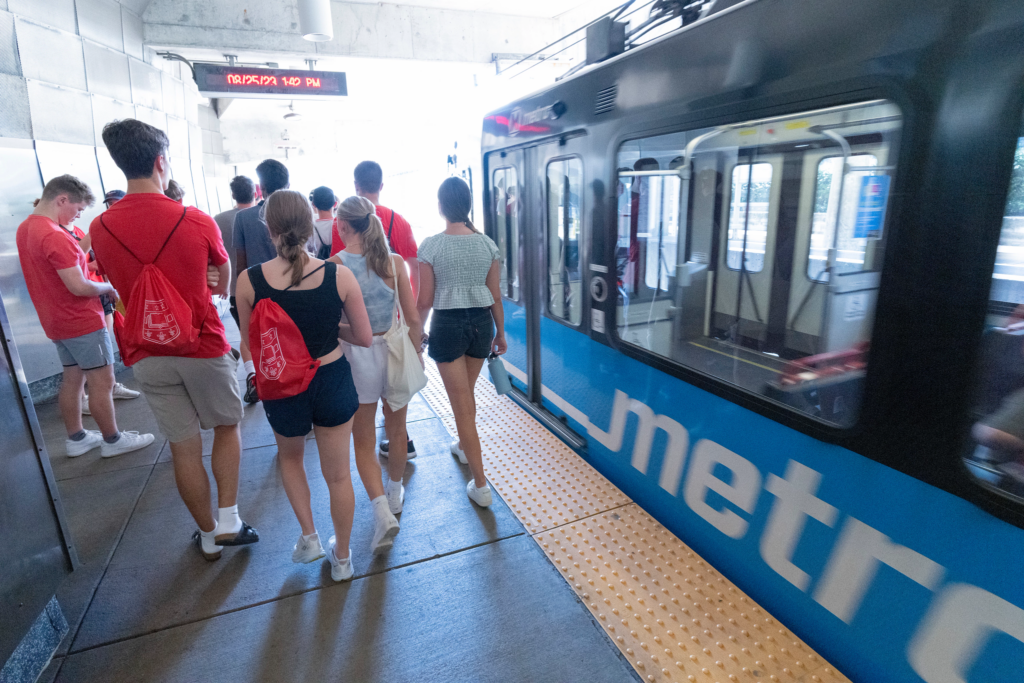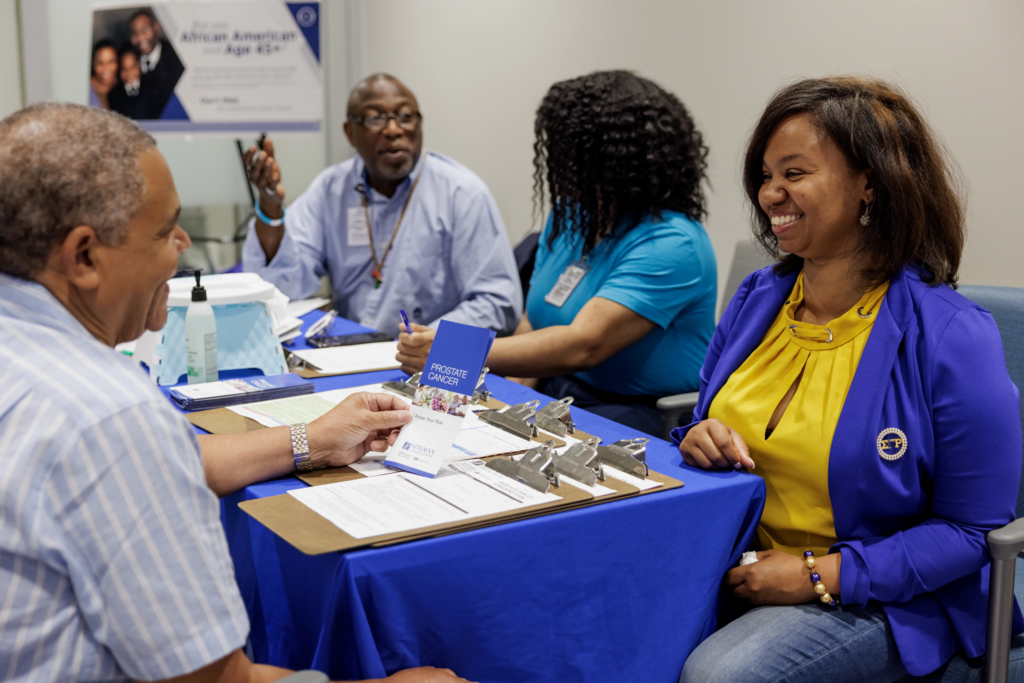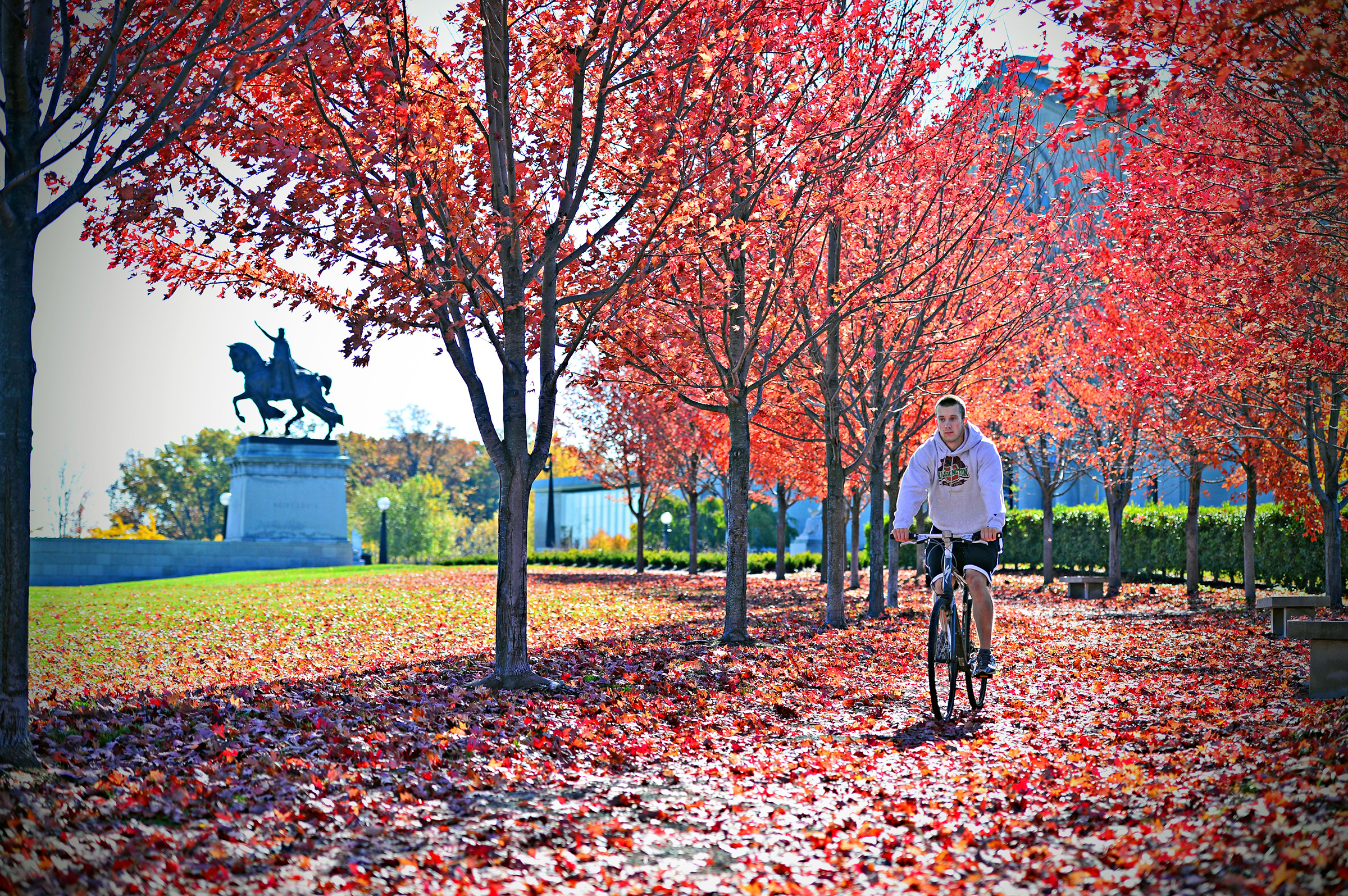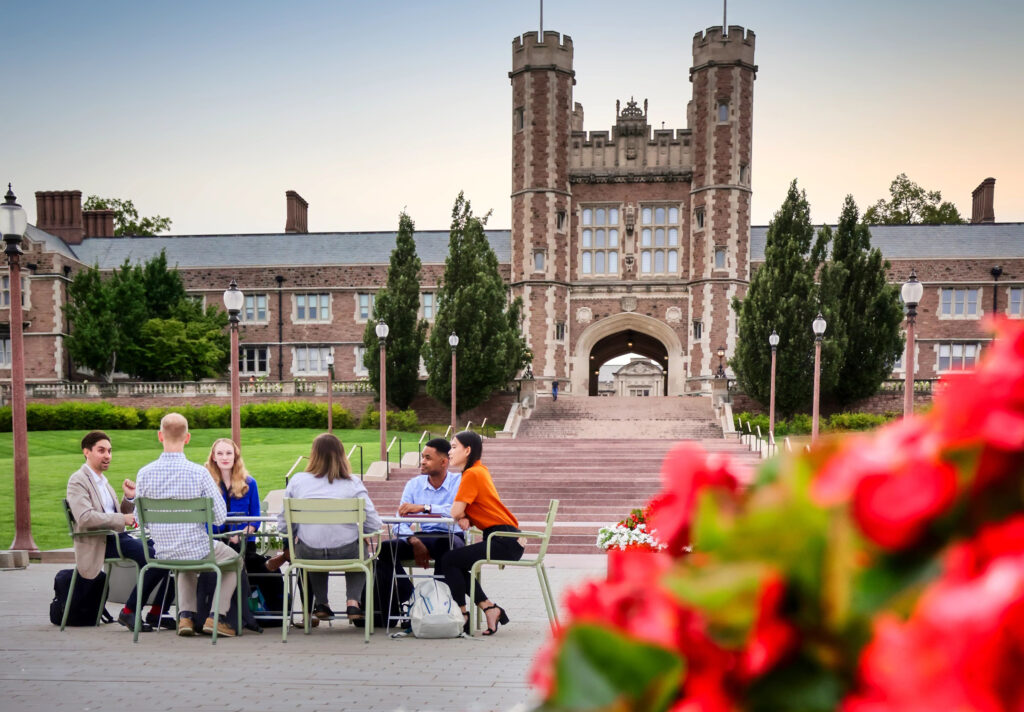At WashU, we are proud to be a partner in our hometown of St. Louis. As an institution founded to provide higher education to St. Louisans, leveraging our mission in service of St. Louis is in our DNA.
There is no shortage of great ideas on how we can serve this shared objective. Each WashU student, faculty, staff member, and alumnus has a unique experience in St. Louis, which inspires fresh, innovative ideas of how we can serve the broader community. Our neighbors throughout the City of St. Louis, University City, and Clayton do too.
Our task is to engage in a dialogue with our community to identify opportunities that can best serve the mission of WashU and make the greatest contribution to the broader St. Louis community.

Our guiding principle is mutual benefit: Ensuring our investments or acts of service we’re providing to and in partnership with a community are a benefit to both WashU and the community itself.
The most tangible examples are improvements to the built environment. In the past few years, WashU has invested $5 million to upgrade the Central West End Metrolink station and spent $750,000 to make the Skinker and Forest Park Parkway intersection safer for pedestrians, those in wheelchairs, and cyclists. WashU provides more than $2 million to Bi-State every year to acquire Metro passes for our employees, students, and contractors, allowing them to use public transit at no cost, increasing the accessibility of our campus and region for everyone. And recently, WashU entered a public-private partnership with BJC and Great Rivers Greenway to support the expansion of the Brickline Greenway, which will connect 14 neighborhoods with 12+ miles of greenways throughout the City of St. Louis. These efforts aren’t just for today but for decades to come, ensuring that St. Louis has a safe, efficient, and sustainable public infrastructure.
We also serve our region in patient care and public health. One in five St. Louisans are under the care of a WashU physician. As the region’s largest safety net provider, WashU provides more than $252M every year in uncompensated care. This means that WashU physicians and other health care professionals deliver medical care, behavioral health, physical therapy, occupational therapy and other vital health-related services to low-income, uninsured or underinsured people in our region regardless of their ability to pay. Additionally, federally funded research produced at WashU’s Medical School or on the Danforth Campus draws millions of dollars into our area and creates hundreds of new jobs in our region each year.
This means that WashU physicians and other health care professionals deliver medical care, behavioral health, physical therapy, occupational therapy and other vital health-related services to low-income, uninsured or underinsured people in our region regardless of their ability to pay.
We’ve also invested significant resources to increase the accessibility and affordability of a WashU education, particularly for students from our extended region. In the past three years, WashU has provided approximately $20 million per year in scholarships to students from Missouri and Southern Illinois, ensuring cost is no longer a barrier for talented local students to earn a WashU diploma. Through our School of Continuing and Professional Studies, we offer educational programs that meet the emerging needs of our regional workforce. WashU’s Institute for School Partnership collaborates with nearly every school district in the region to put research into practice for better lessons and classroom practices, as well as improved school culture and communications.

In each of these areas, WashU has identified a way to benefit our community while advancing our core mission of teaching, research, and patient care. In other words, a mutual benefit for both the St. Louis region and for WashU, together.
We are sometimes asked why WashU does not make “payments in lieu of taxes” (which are sometimes called “PILOTS”) to local governments. A PILOT is one way a local jurisdiction can collect a payment from a nonprofit like WashU that is exempt from paying property taxes. In most instances, a PILOT is created when the local jurisdiction and nonprofit mutually agree on a payment amount for a specific municipal budgetary need over a specific period. PILOTs are fairly rare between higher education institutions and the local jurisdictions they serve. Only a small number of universities – mostly on the east coast – have opted to make this type of direct payment to the general fund of their local municipality. These payments generally make up less than 2% of the municipalities’ general revenue.
Some who advocate for institutions like WashU to pay a PILOT suggest these payments are the necessary substitute for lost revenue the nonprofit would otherwise have to pay. Others may suggest a PILOT is the way for nonprofits to demonstrate their commitment to the community or communities they serve. We believe these arguments miss the mark. They do not account for the substantial economic and societal benefit ($9.3 billion regional economic impact for FY 24; region’s second largest employer) a higher education institution already provides to their community on an annual basis; they divert resources away from programs like scholarships, research, patient care and community programs; and they imply higher education institutions should be treated as for-profit commercial entities versus education institutions rooted in a mission to provide a public good. Based on these principles, we have made the decision not to participate in a PILOT program in the traditional form.
Instead, we seek to find opportunities to partner with our community on projects or programs of commonality: Fixing our streets, subsidizing public transportation, offering teaching assistance in our schools and providing scholarships for local students, job creation in industries of the future, community-based research to solve issues that affect us all, and health care for those who need it the most. Through this approach, WashU serves our community in ways a PILOT never could.
WashU has never been more committed to serving all of us who call the St. Louis region home. From the start of Chancellor Andrew Martin’s tenure, we have been dedicated to ensuring that WashU is “in St. Louis, for St. Louis” – that we draw upon our strength as an economic anchor; our role as a global talent magnet; and the power of our mission of research, education, and patient care to create real, lasting impact and opportunity in St. Louis and beyond. We will always welcome the chance to work directly with stakeholders to seek out opportunities where we can partner together to find projects or programs that are in our mutual interest, and we will never stop serving the families and neighbors in our community.

WashU has never been more committed to serving all of us who call the St. Louis region home.“
